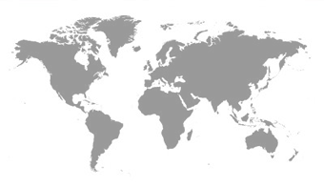Taiwan aims to make pig raising more environmentally sustainable
There's a lot about conventional methods for raising livestock that is decidedly unsustainable. Feed lots and other such large scale farms not only produce a lot of waste, but also use an incredible amount of resources.
Animals eat lots of food (which is usually a mix of corn in various forms, miscellaneous fats, soy products, and sometimes antibiotics or other questionable additives), and need lots of water, but it's the by-product that really raises a stink and makes a significant contribution to pollution.
In an effort to cut down on unpleasant odor while also tempering pollution, the Taiwanese government is encouraging pig farmers to install "toilets" in their pig pens. It sounds ridiculous, but the new twist on pen design seems to be making a difference. The "toilet" is quite basic: simply a section of iron bars in the corner of the floor in each pen.
Pigs are trained to relieve themselves while standing over the bars so that waste is collected in one tidy spot, rather than slopped throughout the pen. To train the pigs, some feces in placed in the toilet area, while the rest of the pen is totally clean. The pigs will follow the smell of the excrement and eventually get the hint.
The Taiwanese ministry of the environment estimates that they will save 180 million liters of water per day with the new and improved pig pen design, water that would normally be used in cleaning the pens. The waste is also to be turned into valuable manure for other agricultural operations, made more valuable by the fact that it won't be as watery as it was previously.
By diverting the pig waste and making it a marketable product, Taiwan is also helping to save their waterways and steer clear of the infamous CAFO manure swamps.
To create more of an incentive for farmers, the Taiwanese government is providing financial assistance to farmers who agree to install pig toilets on their farm. While training pigs to use a toilet may be small potatoes in the grand scheme of large scale, conventional agriculture, more government agencies should be as proactive as the Taiwanese Ministry of the Environment.
This article hasn't been commented yet.

















Write a comment
* = required field